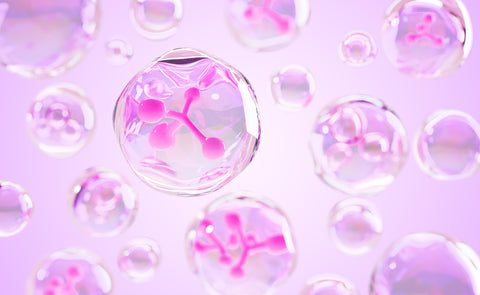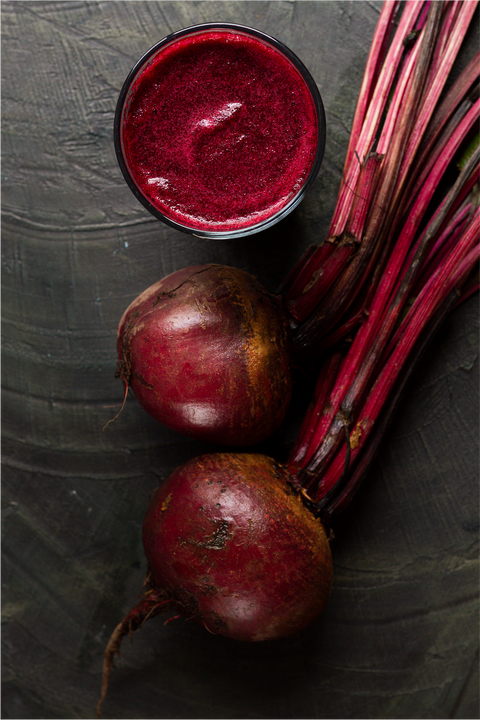Why TMG (Trimethylglycine) 1000mg Matters for Cellular Health

Key Takeaways
-
TMG (Trimethylglycine) 1000mg supports methylation, a normal biological process essential for cellular and cardiovascular health.
-
TMG supplementation may help lower homocysteine levels already within the normal range.
-
Clinical and non-clinical studies support TMG’s role in liver detoxification, DNA repair, and lipid metabolism.
-
Found in beet and other vegetable sources, TMG is available in tablet form with non-medicinal ingredients such as stearic acid, cellulose, hypromellose, and sunflower lecithin.
What Is TMG 1000mg?
TMG 1000mg, or Trimethylglycine, is a naturally occurring compound known for donating methyl groups—an important step in the conversion of homocysteine into methionine. Methylation is a normal biological process that affects everything from DNA repair to liver detoxification. TMG has been shown to support these processes effectively, especially in individuals looking to maintain healthy homocysteine levels.
Derived from beet and other vegetable sources, TMG is often labeled as betaine anhydrous in dietary supplements. It’s available in tablet form and commonly used alongside folic acid and other methyl donors to optimize methylation processes.
Why Methylation Matters
Methylation processes are vital to your body’s ability to function optimally. This biochemical process regulates gene expression, detoxification, neurotransmitter production, and cardiovascular function. TMG supplementation can enhance methylation, helping to manage high homocysteine levels—a known risk factor for heart and artery health.
Increased levels of homocysteine in the blood can lead to serious health issues. TMG helps maintain healthy homocysteine levels already within the normal range, reducing the risk of hypermethioninemia and supporting liver and cardiovascular health.
Clinical and Non-Clinical Studies Supporting TMG
Both clinical and non-clinical studies to support healthy homocysteine levels indicate that TMG supplementation is effective and safe. Shown in clinical and non-clinical research, TMG may help lower homocysteine in the blood while supporting DNA repair, cardiovascular function, and overall health.
TMG 1000mg tablets typically include non-medicinal ingredients such as stearic acid, cellulose, croscarmellose sodium, hypromellose, triethyl citrate, hydroxypropylcellulose, magnesium stearate, and a tablet coating to ensure stability and efficacy.
How TMG Supports Liver Health and Detox
TMG plays a critical role in liver detoxification mechanisms by promoting the methylation of toxins for safe removal. As a friendly amino acid derivative, it helps balance the body’s methyl levels, which supports overall metabolic function and energy production.
TMG has been used in non-clinical studies to support healthy liver function and shown to improve lipid metabolism and the conversion of homocysteine to methionine. These actions help protect liver cells and maintain optimal performance.
How to Use TMG 1000mg Tablets
TMG 1000mg is commonly taken once or twice daily, depending on your needs and the advice of a healthcare professional. As with all dietary supplements, use and not rely solely on the information provided online. We recommend that you read labels and consult your physician prior to use, especially if you are pregnant or breastfeeding, taking medication, or have a medical condition.
Each bottle typically contains 100 tablets. Items may occasionally ship with alternate packaging due to manufacturing changes to packaging and product images and information. Ingredients may be pending updates, so always read the directions of all products before use.
Choose TMG with Confidence
Look for TMG supplements that prioritize purity, potency, and ingredient transparency. A reliable product should clearly list non-medicinal ingredients and be supported by customer reviews.
FAQs
Q: What is the difference between TMG and betaine anhydrous?
A: They are the same compound. TMG is also known as betaine anhydrous and is often labeled as such in supplements.
Q: Can TMG help lower homocysteine?
A: Yes. TMG has been shown to support healthy homocysteine levels already within the normal range.
Q: Is TMG safe to take daily?
A: For most individuals, yes. However, consult your physician prior to use, especially if taking medication or managing a medical condition.
Q: Are there any side effects?
A: Mild side effects may include onset of nausea or diarrhea. If symptoms persist, discontinue use and consult a healthcare provider.
Q: What’s the source of TMG in supplements?
A: TMG is often derived from beet, a clean and sustainable vegetable source.
Conclusion
TMG 1000mg supports methylation, liver detox, and cardiovascular health by helping maintain healthy homocysteine levels.
Choose Just Glow for trusted, high-quality TMG. Visit just-glow.com to shop.
Also viewed: probiotic, folic acid, personal care, shellfish-free dietary supplements.
Warnings: Keep out of reach of children. Consult your physician if pregnant, breastfeeding, on medication, or managing a condition.
Summary
TMG 1000mg, also known as Trimethylglycine, is a powerful methyl donor that plays a key role in supporting methylation, cardiovascular function, liver detoxification mechanisms, and overall health. TMG has been shown in clinical and non-clinical studies to support healthy homocysteine levels, promote cellular health, and aid in the conversion of homocysteine—a damaging amino acid—into methionine, a friendly amino acid vital for DNA repair and energy production. In this article, we explore how TMG 1000mg supplementation supports your body's natural methylation processes and why it's a key component in your wellness stack.






